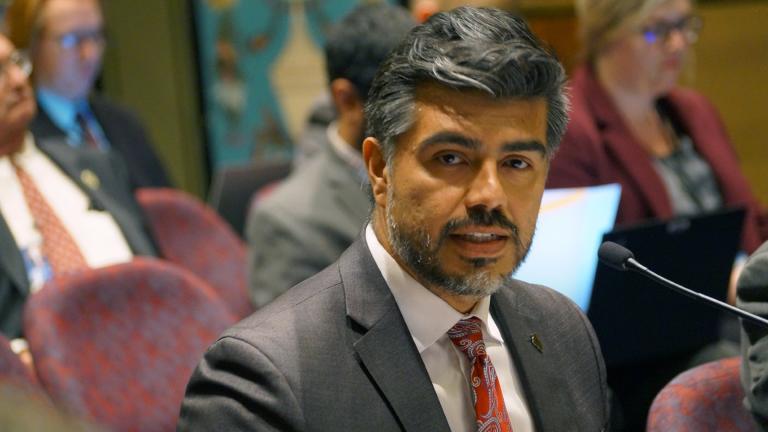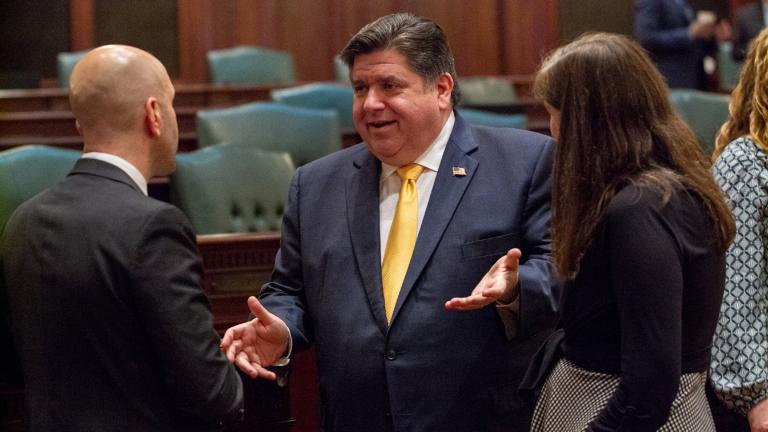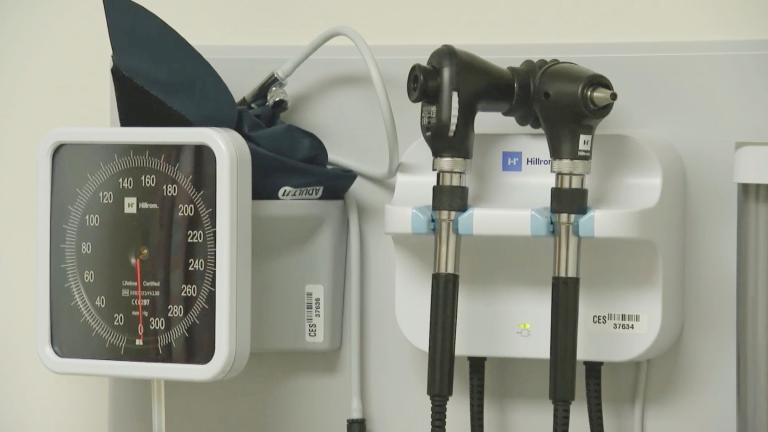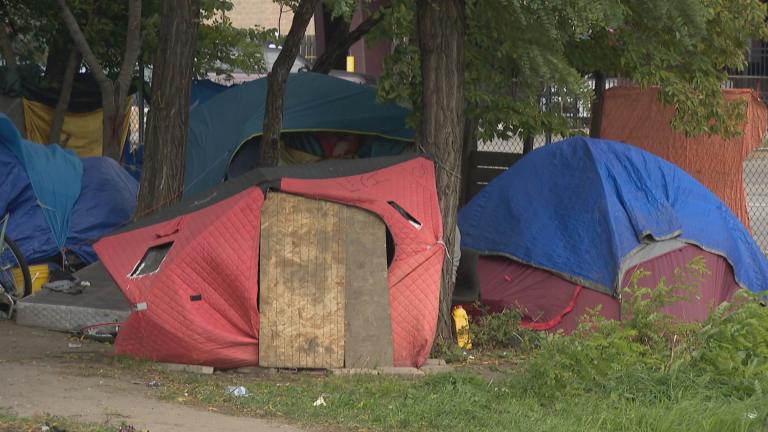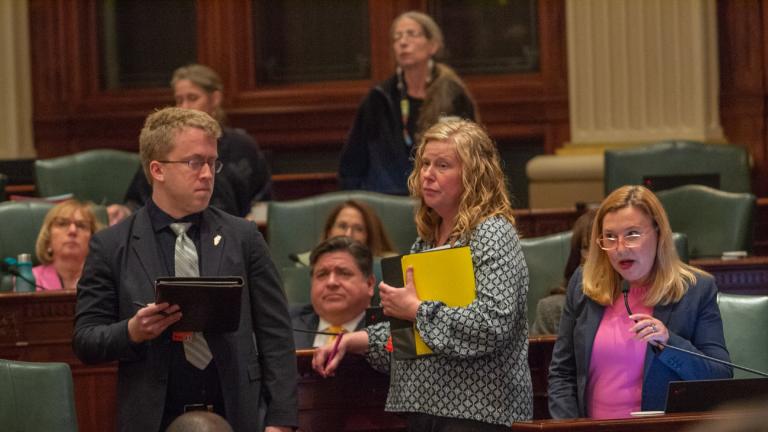Illinois is one of the few states that provides Medicaid-style health care benefits to undocumented immigrants, but that coverage is proving costly and the state is scaling back.
It’s causing a political rift.
Illinois has for years covered low-income undocumented children, up to age 18, under the All Kids program.
The benefits for adults are newer. Illinois began covering undocumented seniors in 2020 (under the Health Benefits for Immigrant Seniors program) and has since expanded to covers adults ages 42 and older (under the Health Benefits for Immigrant Adults program).
These undocumented immigrants and Green Card holders of less than five years are not eligible for federal Medicaid benefits; to qualify in Illinois they also have to be low-income.
Latino lawmakers and other advocates this year tried to grow the program, to include adults ages 19 to 41 who are currently left out (House Bill 1570 and Senate Bill 122). Instead, the opposite is happening, as Illinois tightens the reins on coverage.
Gov. J.B. Pritzker’s administration announced the coming changes on Friday. According to a news release from the state’s Department of Healthcare and Family Services, highlights include:
- A “temporary” enrollment pause. When the new fiscal year begins July 1, new eligible residents ages 42 to 64 won’t be able to sign up.
- The state will cap at 16,500 the number of seniors who can enroll.
- Everyone enrolled will have to start paying copays of $100 to $250 for hospital visits that are not eligible for matching federal reimbursement.
Those are qualifiers that Tovia Siegel, director of the Healthy Illinois Campaign, said are rooted in bias and were made without consultation of advocates.
“There’s concerns about people who don’t know this program exists and will show up at the hospital needing cancer care or other acute care and would have been eligible for coverage and now won’t be,” Siegel said. “There’s certainly confusion and fear now and there’s also trepidation about what hasn’t happened yet that we expect to happen when a program that we’ve had for years now is suddenly closed down.”
Siegel said the copays will be too expensive for a population that by definition is low-income, and that the enrollment cap leaves little room for more seniors to join.
The argument that it’s all about cost saving is nonsense, Siegel said, because in the long run access to preventative health care saves money. She believes something else is at play.
“The narrative around not being able to spend money on health care — and especially health care for the state’s most vulnerable — does come from a place of anti-immigrant sentiment and believing some people are more worthy of health care than others,” Siegel said.
Healthy Illinois condemns the changes and is calling on Pritzker to reverse them.
The organization has lots of allies, from Latino state lawmakers to Chicago City Council members to members of Congress.
“The decision by Governor Pritzker to cut off health care enrollment for immigrants is wrong and will have life-and-death consequences,” U.S. Rep. Jesús “Chuy” García said in a statement. “The state is trying to save money by ripping away care from undocumented people — care they were promised and programs that many immigrants have paid into. In the end, defunding preventative care will cost everyone more money and more pain.”
García said the “the state’s commitment to immigrants must be honored. This backsliding is unacceptable and cannot continue.”
But state Sen. Dave Syverson (R-Rockford) said he and other Republicans tried to warn Pritzker about the rising costs and were ignored. Now the state is learning that Illinois can’t afford to take on such a massive program.
“If you’re the only state and the only country that says, ‘We’ll take the sickest of yours, send ‘em to us,’ it will bankrupt our state,” Syverson said. “It will mean we won’t be able to help our most vulnerable population. It means our seniors are going to wait (for care). Our disability community is going to suffer. The people that we have that have cancer and heart and other issues, with their insurance costs going way up to cover this — they’re suffering.”
He said if the federal government “has borders open” then the federal government should take on the cost of health care for migrants, “not Illinois taxpayers.”
Syverson said thus far, undocumented immigrants receive better health care coverage than Illinois Medicaid recipients, who are part of a managed care system. He said at the least, those who are part of the immigrant health care programs should have the same setup.
The senator agrees with Seigel that folks may not be able to afford the new copays, but he says they’ll still go to the doctor — and that health care systems will have to swallow those costs.
“What we’re seeing is just a movement from the state of Illinois budget, state of Illinois taxpayers, is now instead going to be moved to hospitals and health care providers who are going to be hit with hundreds of millions of dollars of uncompensated care, which they are going to have to them pay most likely by cost-shifting it onto everyone that has insurance,” Syverson said.
The whole situation puts Pritzker in a tough spot politically.
He touted the program originally and has said he believes in health care as a human right.
But his administration projected the cost for Fiscal Year 2024 was going to top $1 billion, an amount that legislators determined the state couldn’t afford.
Democrats in the General Assembly gave the governor the authority (Senate Bill 1298 and Public Act 103-0102) to make these decisions and others as part of the budget deal they passed and that Pritzker signed in early June, making the protestations by some more public performance than earnest calls to action.
Pritzker’s team said the program is still a success, given that tens of thousands of people who wouldn’t have had any health care coverage do now.
Meanwhile, advocates like Healthy Illinois are working to get as many people as possible signed up before that July 1 deadline.
Follow Amanda Vinicky on Twitter: @AmandaVinicky

